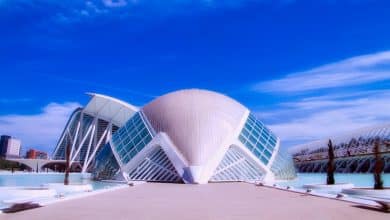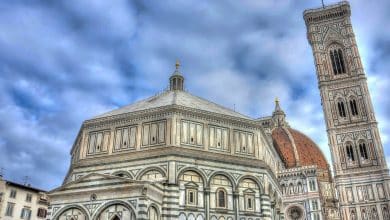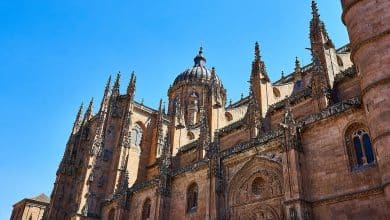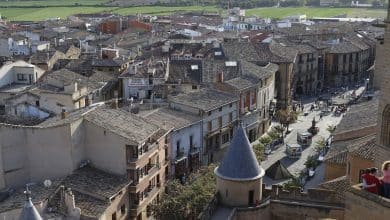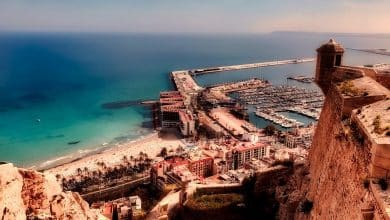Fiesta Frenzy: Discover the Best Festivals in Spain
Spain's top 10 festivals

Spain is a country steeped in history and culture, and its festivals reflect this rich heritage. From the Running of the Bulls in Pamplona to La Tomatina in Buñol, Spain’s festivals offer a glimpse into the country’s traditions and way of life. These festivals are not only a celebration of culture but also an opportunity to experience the country’s vibrant energy and passion. They are must-see tourist attractions in Spain, as they showcase the country’s unique customs and provide an unforgettable experience. From food fights to religious processions, Spain’s festivals offer a diverse array of cultural experiences that are sure to leave a lasting impression.
Spain is known for its vibrant and colourful festivals that are celebrated throughout the year. Here are the top 10 festivals in Spain that you should know about:
1- La Tomatina
La Tomatina is a popular food fight festival that takes place in the small town of Buñol, near Valencia, Spain. The festival is held on the last Wednesday of August, attracting thousands of visitors from all over the world. It is considered one of the most popular festivals in Spain.
The festival is said to have originated in 1945 when a group of young men started throwing tomatoes during a parade. The tradition continued, and by 1952 it became an official town festival.
The festival begins at 10 AM with a parade of giant papier-mâché figures, followed by a ham-on-a-pole competition. At exactly 11 AM, a rocket is fired, signalling the start of the tomato fight. Participants, who must wear goggles for protection, throw tomatoes at each other for an hour. After the hour, the festival ends with the cleaning of the streets.
It’s important to note that only tomatoes grown specifically for the festival are used, and they are squashed before the fight to reduce the impact.
La Tomatina is a unique and colourful festival that offers a glimpse into Spain’s vibrant culture and traditions. It is a fun and exciting event that should not be missed.
2- Running of the Bulls
The Running of the Bulls, also known as the San Fermin festival, is a traditional event that takes place in Pamplona, Spain. The festival is held annually from July 6th to 14th, and it attracts thousands of visitors from all over the world.
The festival, which dates back to the 14th century, is rooted in the tradition of bull running, where bulls are released through the streets and chased by participants. The event takes place every morning at 8 AM during the festival, lasting for about four minutes.
Participants, known as “mozos” or “runners” run in front of six bulls along a 930-yard course through the streets of Pamplona, ending in the bullring. The bulls are then used for bullfighting events in the evenings.
3- La Mercè
La Mercè is a popular festival that takes place in Barcelona, Spain. The festival is held annually on the last weekend of September, attracting thousands of visitors from all over the world. It is considered one of the most important cultural festivals in the city.
The festival is named after the patron saint of Barcelona, Our Lady of Mercy, and it is a celebration of the city’s culture and heritage. The festival features various events, including parades, street performances, and fireworks.
La Mercè is a vibrant and colourful festival that offers a glimpse into Barcelona’s vibrant culture and traditions. It features a wide variety of events, including the “Gigantes y Cabezudos” parade, where giant puppets and characters with oversized heads march through the streets, the “Correfoc” (fire run), where participants dressed as demons and devils dance through the streets while spraying fireworks, and the “Castells” (human towers) where teams build human towers up to 10 levels high.
4- Feria de Abril
Feria de Abril, also known as the April Fair, is a traditional fair that takes place in Seville, Spain. The fair is held annually during the two weeks following Easter, attracting thousands of visitors from all over the world.
The fair is a celebration of Seville’s culture and heritage, and it features a wide variety of events, including horse riding, flamenco dancing, and traditional costumes. The fairground is divided into different sections, known as “casetas”, which are essentially large tents where visitors can enjoy food, drinks, and live music.
Feria de Abril is a vibrant and colourful event that offers a glimpse into Seville’s culture and traditions. Visitors can expect to see a wide variety of traditional costumes, such as the “traje corto” for women and the “traje de luces” for men. The fairground is also decorated with beautiful lighting, creating a festive atmosphere.
5- San Fermín
San Fermín is a popular festival that takes place in Pamplona, Spain. The festival is held annually from July 6th to 14th, attracting thousands of visitors from all over the world. It is considered one of the most famous and popular festivals in Spain.
The festival is named after Saint Fermin, the patron saint of Navarra, the region where Pamplona is located. The festival is famous for its Running of the Bulls event, where bulls are released through the streets and chased by participants. However, the festival is not only about the Running of the bulls; it also features various cultural events and activities, such as live music, parades, fireworks, and traditional dances.
San Fermín is a vibrant and colourful festival that offers a glimpse into Pamplona’s culture and traditions. Visitors can expect to see a wide variety of traditional costumes, such as the “traje corto” for women and the “traje de luces” for men. The festival is also decorated with beautiful lighting, creating a festive atmosphere.
6- Carnaval de Cádiz
Carnaval de Cádiz is a popular carnival that takes place in Cádiz, Spain. The carnival is held annually in February, and it attracts thousands of visitors from all over the world. It is considered one of the most important and oldest carnivals in Spain and one of the most renowned in Europe.
The carnival is known for its colourful costumes, lively music, and satirical performances. The main event of the carnival is the “comparsas” and “chirigotas” parade, where groups of people dressed in colourful costumes and masks perform satirical musical acts and skits, poking fun at politicians and current events.
Carnaval de Cádiz is a vibrant and colourful festival that offers a glimpse into the culture and traditions of Cádiz. Visitors can expect to see a wide variety of traditional costumes, such as the “traje corto” for women and the “traje de luces” for men. The festival is also decorated with beautiful lighting, creating a festive atmosphere.
7- Semana Santa
Semana Santa, also known as Holy Week, is a religious festival that takes place in various cities throughout Spain. The festival is held annually during the week leading up to Easter Sunday, and it attracts thousands of visitors from all over the world. It is considered one of the most important religious festivals in Spain.
The festival features processions and reenactments of the Passion of Christ, with large groups of people dressed in traditional robes and hoods known as “nazarenos” carrying religious statues and crosses through the streets. The most spectacular processions take place in cities such as Seville, Malaga, and Granada.
Semana Santa is a solemn and emotional event that offers a glimpse into Spain’s religious culture and traditions. Visitors can expect to see a wide variety of traditional robes, hoods and religious statues. The festival is also decorated with beautiful lighting, creating a festive atmosphere.
It’s an important event that should not be missed and is a great opportunity to experience the culture, customs and traditions of Spain’s religious heritage. With processions, reenactments and traditional costumes, it’s a unique blend of religion and culture.
8- La Feria de Málaga
In Málaga, Spain, there is a yearly fair called La Feria de Málaga. Every year in August, hundreds of people travel from all over the world to attend the event. One of the most significant cultural events in the city is this festival.
The festival offers various activities, such as horseback riding, flamenco dancing, and wearing traditional attire. The fairground is separated into many “casetas,” which are big tents where people can eat, drink, and listen to live music. The fairground, which is situated on the banks of the Guadalmedina River and has a distinctive layout with many of the residences constructed in characteristic Andalusian architecture, is held in the heart of the city.
The lively and colourful La Feria de Málaga event provides a window into the customs and culture of the city. A broad range of traditional attire, including the “traje corto” for ladies and the “traje de luces” for men, may be expected to be seen by visitors. Beautiful lighting has also been used to beautify the fairground and create a festive ambience.
9- La Feria de Abril
The April Fair, also known as La Feria de Abril, is a historic fair held in Granada, Spain. The fair is held every year in the two weeks after Easter and draws thousands of tourists from all over the world.
The fair celebrates Granada’s culture and legacy, including horseback riding, flamenco dance, and traditional costumes. The fairground is separated into parts called “casetas,” which are enormous tents where guests may enjoy food, beverages, and live music.
La Feria de Abril is a vivid and colourful celebration that provides a look of Granada’s culture and customs. Traditional clothes, such as the “traje corto” for ladies and the “traje de luces” for men, may be seen by visitors. The fairground is also beautifully illuminated, giving a festive mood.
10- La Feria de Mayo
The May Fair, commonly known as La Feria de Mayo, is a historic fair held in Madrid, Spain. The yearly fair is held in the second part of May and attracts tens of thousands of tourists from across the globe.
The fair is a celebration of Madrid’s culture and legacy, and it includes a wide variety of attractions, such as horseback riding, flamenco dance, and traditional dress. The fairground is separated into sections known as “casetas,” which are essentially enormous tents where attendees may enjoy food, beverages, and live music.
La Feria de Mayo is a vivid and colourful celebration that showcases Madrid’s culture and customs. A variety of traditional costumes, such as the “traje corto” for ladies and the “traje de luces” for men, may be observed by tourists. The fairground is also illuminated beautifully, giving a festive ambiance.
It is a terrific opportunity to explore the city’s culture, customs, and traditions, as well as a fun and exciting event that should not be missed. With live music, flamenco dance, and traditional costumes, this is an excellent opportunity to immerse oneself in Madrid’s culture and customs.
The bottom line
Spain is a nation renowned for its rich cultural heritage, which is evident in its festivals. Spain’s festivals, such as the Running of the Bulls and La Tomatina, give visitors to the nation a fascinating look into its customs and way of life. They give an amazing experience and serve to highlight the nation’s traditions. They represent a wide range of cultural encounters that are certain to make an impression.

